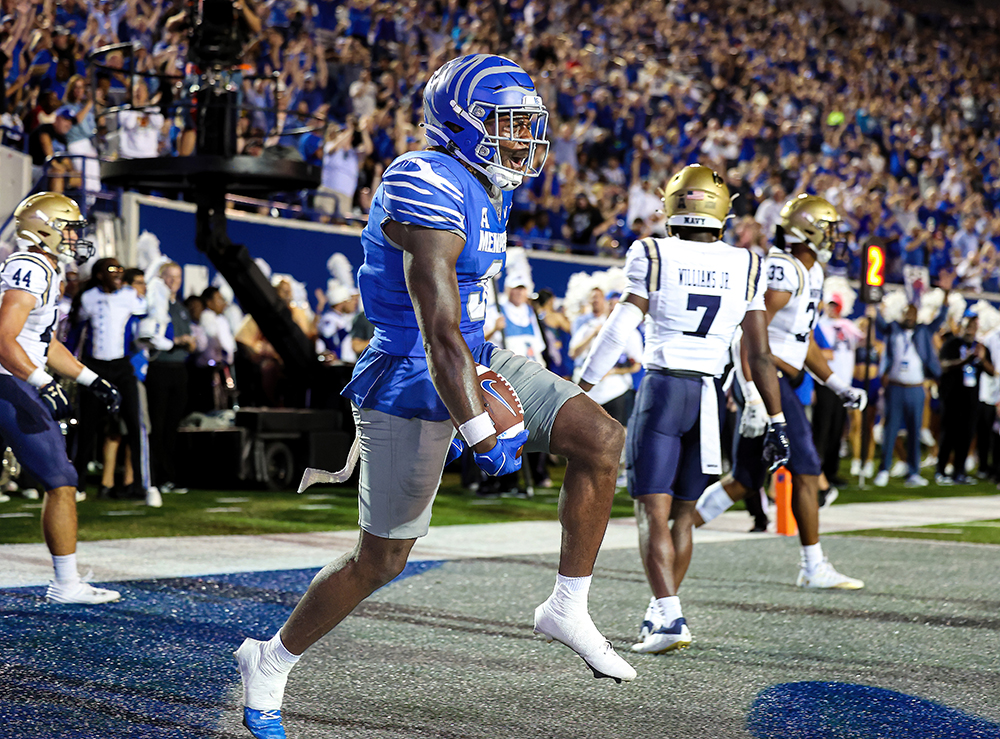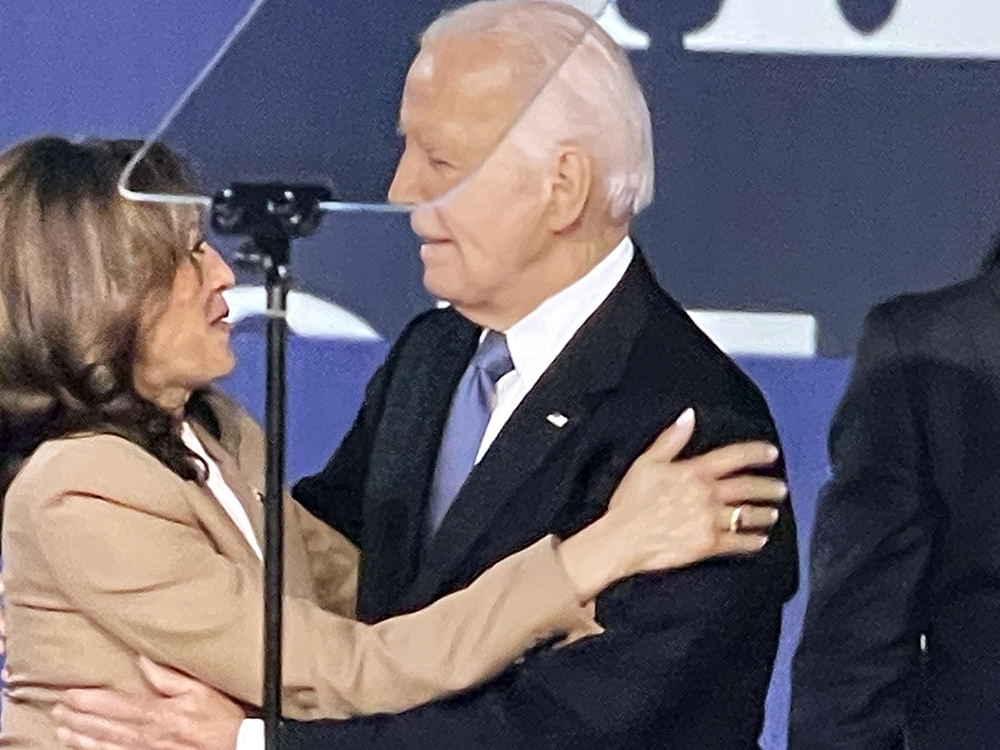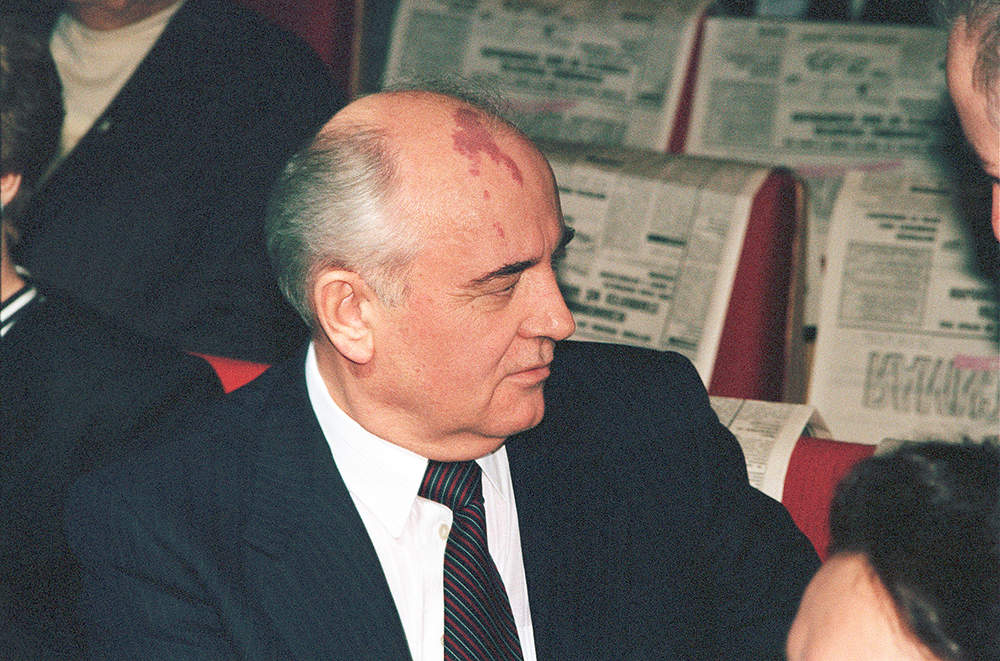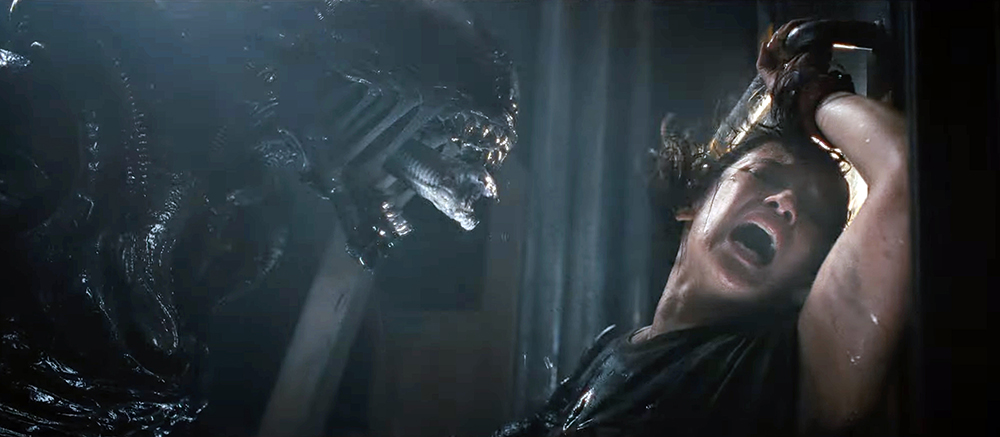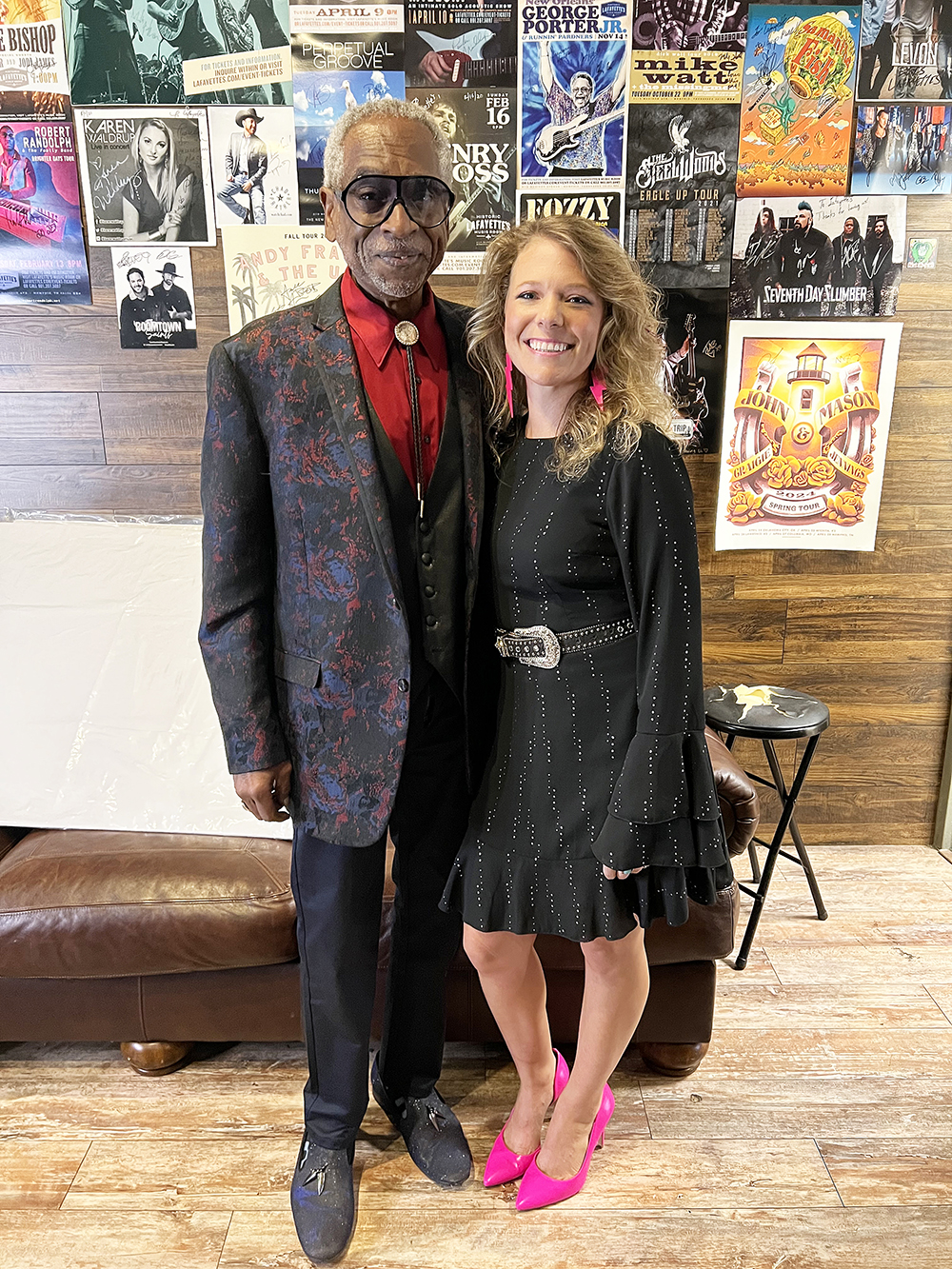There’s no such thing as a perfect football game. Or is there?
In their 36-26 victory over Iowa State in the 2023 AutoZone Liberty Bowl, the Memphis Tigers put three zeroes on the stat sheet that have never been seen together in these parts, and may never be seen again. Memphis committed zero turnovers and zero penalties and (sit down for this one) allowed the Cyclones zero rushing yards. In baseball terms, it was a form of no runs, no hits, no errors … perfection.
“All season, you want to play a complete game,” says Ryan Silverfield, entering his fifth season as head coach of the Tigers and ninth with the program. “It’s getting harder and harder. We had games where the defense carried us, then the offense or special teams. We finally saw a cumulation of a lot of things going well, and at the right time. Beating Ole Miss [in 2019] was great, College Gameday, the Cotton Bowl, beating Mississippi State [in 2021]. But I had more people tell me that winning the AutoZone Liberty Bowl meant the most to them, 60-year-old fans or teenagers. It capped off the season, and it was a relatively clean beating. It set up a great deal of momentum going forward, sort of a snowball effect of positivity.”
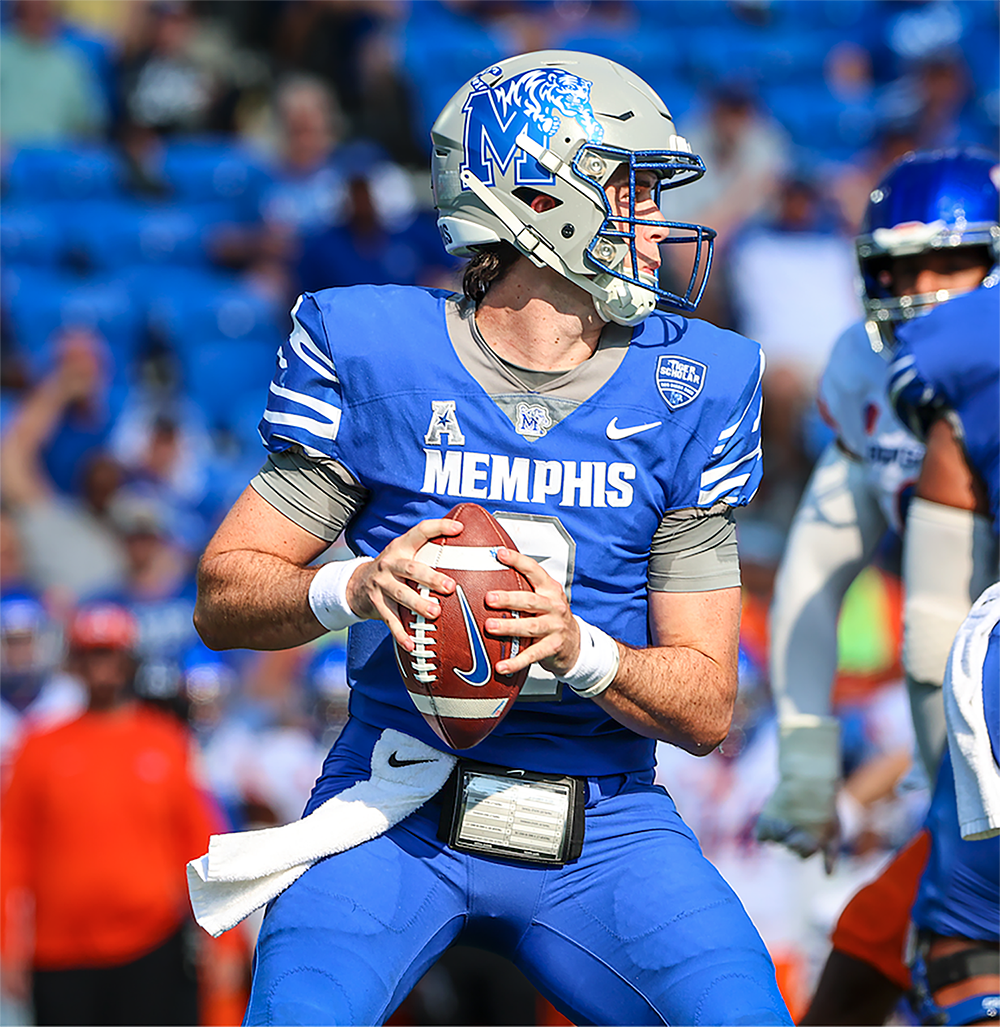
Perfection may not be a fair standard for the 2024 Memphis Tigers, but let’s say the bar is high for this team. For the first time since joining the American Athletic Conference in 2013, Memphis has been picked to win the league championship in the preseason media poll. Last season, Memphis finished sixth in the country in scoring, averaging 39.4 points per game. And the Tigers have the luxury of the most experienced quarterback in the country returning to lead their offense. Senior Seth Henigan is the only FBS quarterback returning for a fourth year as a starter at the same program. The MVP of that Liberty Bowl victory, Henigan has already broken the Memphis record for career passing yards (10,764) and needs just 12 touchdown passes to top Brady White’s record of 90. Most significantly, with six wins, Henigan would move past White’s 28 for the most victories by a Tiger signal-caller.
“Seth started [his college career] as a 17-year-old,” notes Silverfield. “It was like starting a rookie in the NFL. Two years later, he wins 10 games. We all get better. Seth learned how to win games last year. Now he can carry the team, be a leader. It’s his team. Push the standards for everybody on a day-to-day basis. Not just throwing the ball nicely and putting up good stats. When adversity hits, be the one saying, ‘No, this is the way we do things.’ He embraces it fully.”
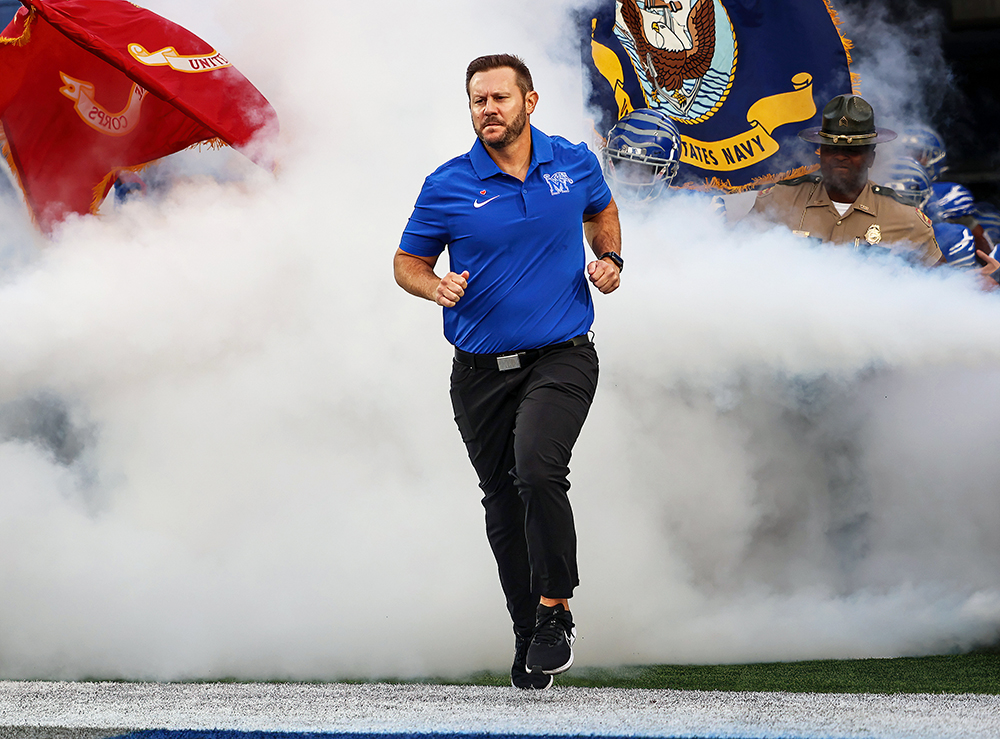
“Watch lists” — those compendiums of candidates for myriad college football individual awards — tend to be more hype than substance, but a single player being on five lists grabs your attention. Henigan is included among contenders for the Maxwell Award (most outstanding player), the Walter Camp Player of the Year, the Davey O’Brien Award (best quarterback), the Manning Award, and the Johnny Unitas Golden Arm Award. If he tops his 2023 season (3,883 yards and 32 touchdown passes), Henigan could well be a finalist for one of these trophies.
Considering his lengthy track record, how does Henigan improve this fall? “He’s got to play the next play of his life perfectly,” says offensive coordinator Tim Cramsey. “Every single day, however many reps he has. That’s hard to do for an entire game. But not for the next play.”
Henigan will have his share of targets, starting with senior wide receiver Roc Taylor, a second-team all-conference pick (like Henigan) in 2023 who caught 69 passes for 1,083 yards to lead Memphis in both categories. Also back are Demeer Blankumsee (901 yards), Koby Drake (352), and tight end Anthony Landphere (260).
“Since I’ve been here, it’s been a grind,” says Taylor, starting his fourth season alongside Henigan. “Building friendships. The loyalty [the program] has given me, I’m giving back. I want to leave my own legacy here. I watch a lot of film on myself, and there are little things I can work on to get better. Knowing reads, when to run a route at a certain speed, and having a connection with Seth.”
The Tigers’ running game will look different this season with Blake Watson (1,152 yards last season) having exhausted his eligibility. But returning are Sutton Smith and Brandon Thomas, both to be pushed by South Carolina transfer Mario Anderson (707 yards for the Gamecocks in 2023). “We have high expectations,” says Silverfield. “Sutton Smith is a dynamic football player. I’m pleased with our depth.” Thomas rushed for 191 yards in a 2021 win at Arkansas State. The idea that he might be the Tigers’ third option on the ground speaks to that depth.

The Tiger defense will be led by junior linebacker Chandler Martin. A preseason All-America candidate, Martin led the Tigers with 95 tackles last season including an eye-popping 17 behind the line of scrimmage. “Sometimes it’s that kid from the FCS level [East Tennessee State] who gets here, does a good job, and takes the bull by the horns,” says Silverfield. “He’s a leader for our team and was appreciative of the opportunity we gave him; he could have gone to larger schools. He does it the right way all the time, a complete student-athlete.”
Like Taylor, Martin heard from other programs over the offseason. But he’s back in blue and gray, and there wasn’t much deliberation. “It’s about loyalty,” he says. “They believed in me here, gave me the chance to be the best version of myself. I’m happy to be back, and be a leader for this team.”
Defensive coordinator Jordon Hankins is relying on Martin being the linebacker we all saw a year ago, but with the added duty of role model for the rest of the Tiger defense. “You don’t have the success he had individually,” notes Hankins, “without understanding you can’t do it without the people around you. He bought into that leadership role. People in the locker room want to be around him. He keeps everybody level-headed. We’re as good as our last play. That’s how he is, every day.”
Alongside Martin will be the most significant transfer arrival of 2024: junior Elijah Herring from Tennessee. Herring led the Volunteers last season with 80 tackles but wasn’t guaranteed a starting spot this fall, so he moved west. Among the veterans returning to the Tiger defense are linemen CorMontae Hamilton and Keveion’ta Spears and senior safety Greg Rubin, a three-year starter who played locally at White Station High School.
“We just have to make sure we stay locked in,” emphasizes Martin. “On the same trajectory, with the same standards. Coach Silverfield does a great job, showing us how we do things. Personally, I want to be the quarterback on defense. Last year, I was just trying to figure it out, fit in. My goal is always no missed assignments. Making sure I do my job within the framework. Once I get the assignment down, how can I make secondary plays? Little details.”
Why are stars like Henigan, Taylor, and Martin back for another season in blue and gray when the transfer portal — and likely more NIL (name/image/likeness) riches — beckon at every corner? “They’re great young men,” stresses Silverfield. “I think loyalty is one of those things that’s getting lost in society, and especially in sports. When I sat down with Roc, I told him about all the positives we have here, and also the negatives. What’s the best choice for him? When the dust settles, a lot of guys are finding that this is the best opportunity: the culture and what we’re trying to do. If we have a lot of good things going, don’t go to the unknown. We have good relationships. They appreciate the truth. And they can maximize everything they want in their college football experience right here.”
The Memphis football program has rarely made national headlines during the summer, but it did in June, when Antwann Hill Jr., the third-ranked quarterback in the 2025 recruiting class, announced his intention to play for the Tigers. If he signs in February, Hill will become the highest-ranked signee in the program’s history. It’s one more effect of that “positivity snowball” Silverfield mentions, a snowball made dramatically larger last fall when FedEx founder Fred Smith announced a $50 million donation toward renovations at Simmons Bank Liberty Stadium. (The university is matching the figure on top of $120 million in funds from the state of Tennessee.)
“We are so grateful to the Smith family,” says Silverfield. “I consider them friends. It truly is a game-changer. We were too far behind with NIL. I worried about our ability to compete, no matter how good our staff was. It’s getting harder and harder to build a roster without NIL. It’s allowed us to compete. Do we want to be relevant or not?”
Renovations to the Tigers’ home stadium — a facility that opened in 1965 — will be done with eyes on relevance in the next round of FBS realignment. What was once a “Power 5” is now four mega-conferences: the SEC (16 programs), the Big 10 (18), the Big 12 (16), and perhaps the most likely landing spot for Memphis, the ACC (14). For now, though, Silverfield’s message is clear and direct: Win the American Athletic Conference championship. Earn that trophy and the bonus may be a berth in the newly expanded 12-team playoff for the national championship.
“Winning helps a lot of things,” says Silverfield, “but it’s not what will decide conference realignment. SMU wanted to move to a larger conference, so SMU put a ton of money into football. Tulane wanted to get better at football, so they put a ton of money into football. Our goals always start with winning the conference. Realignment? We know it’s not done. No one ever woke up thinking Rutgers and UCLA would be playing a Wednesday night volleyball match. I can control what I can control, and I stay up to date. But head football coaches can’t decide that.”
Having “won” the preseason media poll, the Tigers can’t exactly play the no-respect card, a rarity in these parts. But Martin speaks for his teammates in accepting the role as AAC favorites. “It puts a chip on [our opponents’] shoulder,” he says. “Everybody’s going to give us their best shot. It just makes us have to lock in even more, pay more attention to details. You gotta take it week by week.”
Even teams outside those four “power leagues” can aspire to win a national title now, the postseason dance card having expanded from four teams to a dozen. “I use the heck out of that in recruiting,” emphasizes Silverfield. “It makes Memphis that much more special. There are teams in the SEC that have no chance at making the playoff. We do. We need to focus on having our best season, look up in December, and see where the chips fall.”
